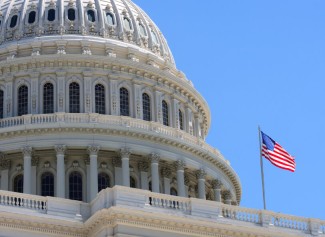Washington, DC—To cut the climate-warming emissions that are intensifying heat waves, droughts, and wildfires, Congress should adopt energy-saving targets as part of President Biden’s proposal for a federal energy efficiency and clean electricity standard (EECES), the American Council for an Energy-Efficient Economy argues in an analysis released today. The plan would build on state policies that are saving enough additional electricity each year to power two million homes by incentivizing utility customers to make efficiency upgrades.
Biden proposed an EECES in his American Jobs Plan, echoing a 2020 campaign proposal in his clean energy plan. This week, noting the “devastation” of climate change that “Americans across the country can see and feel,” he social media to again back the policy. The administration has not yet offered details on how the plan would incorporate energy efficiency.
Successful programs in 27 states and the District of Columbia show vast promise for national energy-saving targets. These states have set their own energy efficiency resource standards (EERS) that require electric and often gas utilities to save a certain amount of energy through efficiency programs for customers. These efforts include measures such as discounts on efficient appliances and equipment and technical assistance to companies to improve energy management.
ACEEE has found that states with these standards have an average of 4 times the level of electricity savings from utility programs (1.2% new savings per year) relative to states without them (0.3%), with large programs saving electricity at just 2.4 cents/kilowatt-hour. In 2019, programs under these standards saved an additional 22 billion kilowatt-hours—enough to power at least two million homes for a year. Continued savings from measures taken in previous years were far higher. Yet much of the country has no such standard today, and the stringency of the policies varies widely among states that do.
“We need to move to clean energy far more rapidly, and reducing the amount of energy we waste is a critical tool to get there,” said Steven Nadel, executive director of ACEEE. “Using electricity more efficiently will lower costs, help us integrate renewable energy, and offset added demand as we electrify more of our economy. Biden was right to include this in his plan, but Congress needs to work on the details and pass it."
Most states with binding renewable or clean energy standards also have an EERS. The new analysis argues that ramping up energy savings will provide immediate reductions in greenhouse emissions because three-fifths of utility-scale electricity generation is still from fossil fuels.
Investing in energy efficiency will help speed and lower the cost of transitioning to renewable energy. It will lessen the need for using fossil fuels at peak times, help speed the retirement of fossil fuel plants, and avoid the building of new ones. As electricity for heating continues to increase, efficiency and demand management programs can reduce demand spikes on winter mornings, which are hard to meet using renewable sources.
By guaranteeing increased investment in utility efficiency programs, energy efficiency standards offer regulatory certainty for utilities and the contractors, manufacturers, and retailers that make up the efficiency workforce and supply network.
The ACEEE analysis argues that Congress could adopt energy efficiency targets separate from a clean energy standard or could combine them. It could take either approach through the reconciliation process, which requires a simple majority vote in the Senate, by levying fees on utilities for underperformance in meeting energy efficiency targets and providing payments for overperformance.
The American Council for an Energy-Efficient Economy (ACEEE), a nonprofit research organization, develops policies to reduce energy waste and combat climate change. Its independent analysis advance investments, programs, and behaviors that use energy more effectively and help build an equitable clean energy future.



